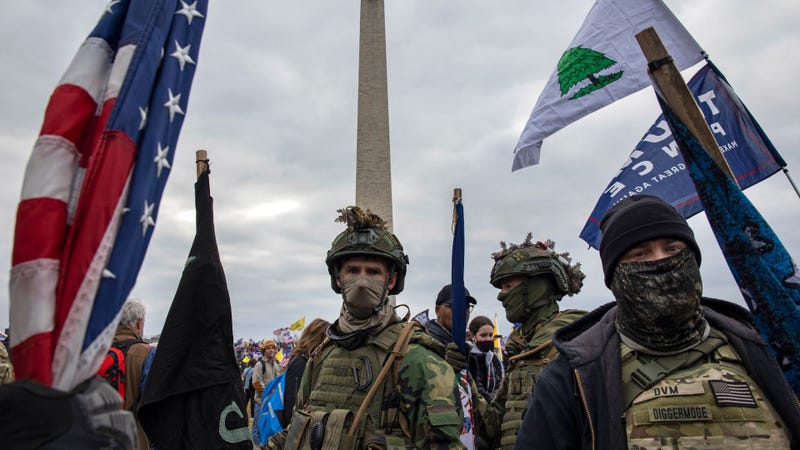
Increasing civic engagement among the veteran community. Better screening for violent extremist beliefs while on active duty. Providing help for veterans who want to exit extremist groups.
Those were just some of the suggestions members of the House Committee on Veterans' Affairs on Thursday heard on how to prevent veterans from joining violent extremist groups.
“The deadlier and more organized terror groups will find a role for everybody,” said Georgia State University psychology professor John Hogan. “But what they want, what they prize above all else is the recruit who is competent, someone who doesn’t just talk, but is willing to act, and can be counted on to do a job.”
The March 31 hearing was the second to examine efforts to recruit veterans into extremist groups. The first was held last October, about 10 months after the Jan. 6 Capitol Riot. In advance of Thursday’s hearing, HVAC Committee Chairman Rep. Mark Takano (D-Calif) released the "Report On Domestic Violent Extremist Groups And The Recruitment Of Veterans” that focused on findings presented by those who testified during the first hearing last October.
“By better understanding these factors that facilitate the radicalization process, we can begin to identify possible solutions to mitigate the threat of domestic violent extremism,” Takano said.
Takano stressed that only a small percentage of the nation’s 18 million veterans have taken part in extremist activity or been recruited by extremist groups.
“However, these numbers are growing, and the consequences of violent extremist activity are serious, not only for our nation but also for the veterans that may go down a path that leads to violence.”
But Rep. Mike Bost (R-Ill.), said the hearing was a political ploy by Takano.
"The chairman is more interested in advancing his own political interest by painting veterans as radical and violent than he is about moving beyond partisanship to figure out the actual help veterans need,” Bost said,
An analysis by the Center for Strategic and International Studies found that right-wing attacks and plots account for the majority of all terrorist incidents that have occurred in the U.S. since 1994 “and the total number of right-wing attacks and plots has grown significantly during the past six years.”
“This is a small but growing challenge,” Army veteran and co-founder of We The Veterans William Braniff said. “We need to have a prevention ecosystem in place now before those numbers continue to rise.”
Army and Afghanistan veteran and former Klu Klux Klan member Christopher Buckley argued that preventing radicalization is always better than treating it.

“We need to prepare our troops not only for being soldiers but also for the civilian life,” he told lawmakers. “We need preventive solutions to help our soldiers deal with the trauma of active duty in healthier ways.”
National Executive Director of AMVETS Joe Chenelly said veterans thrive when they have positive influences in their lives and urged Congress to up its support of those groups.
“Veterans seek purpose, we seek meaning,” he said “Let’s fuel them with hope.”
Reach Julia LeDoux at Julia@connectingvets.com.


